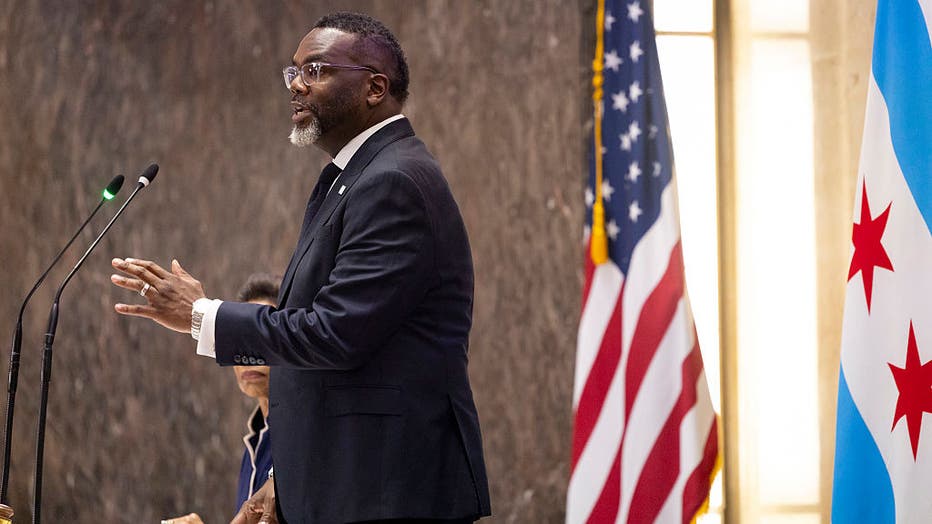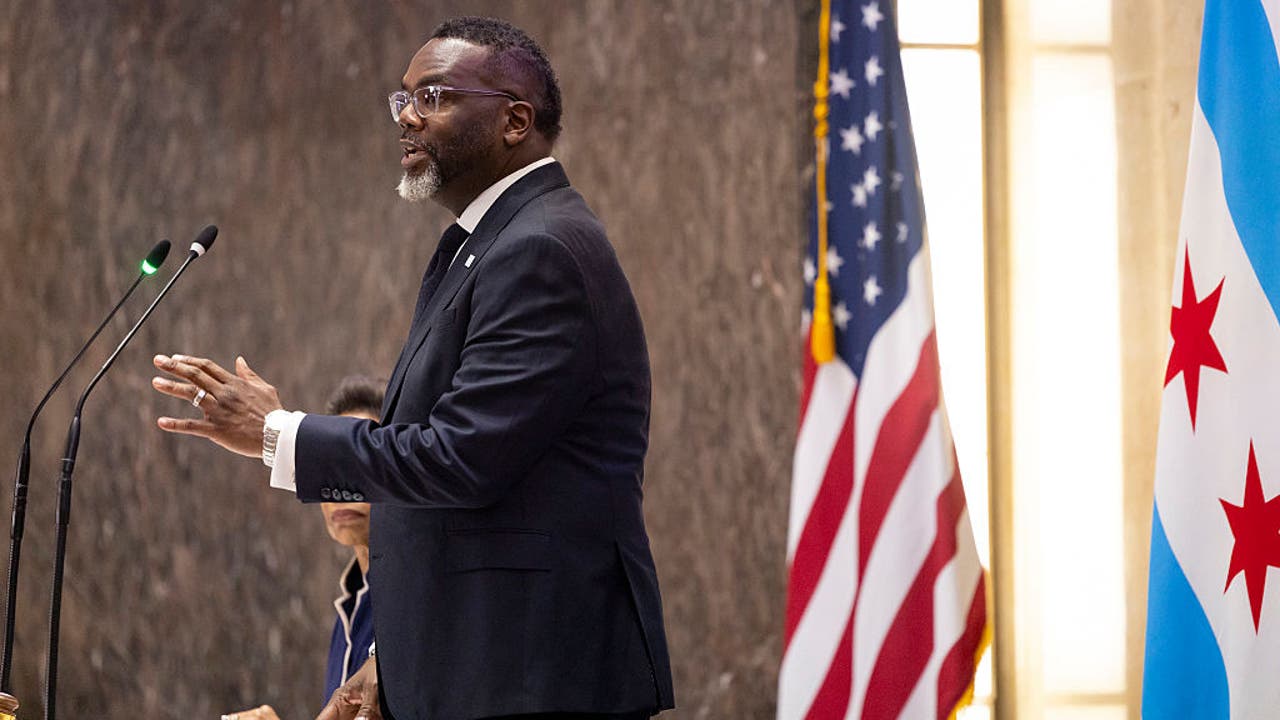CHICAGO – Earlier this month, Mayor Brandon Johnson laid out his proposal on how to close a projected nearly $1.2 billion budget deficit next year.
Johnson framed his proposal, which requires City Council approval by the end of the year, as a progressive approach by raising taxes on large corporations but not including a property tax increase — a move that has proven unpopular in recent years.
Why does the city have a $1 billion deficit?
The backstory:
The city government’s nearly $1.2 billion projected budget deficit next year is the largest gap since 2021, when the COVID-19 pandemic decimated government revenues.
The city, along with other local and state governments, was helped out by massive federal pandemic relief spending, but those funds are set to dry up by next year.
In the meantime, expenses like salaries for the city’s more than 30,000 employees and their healthcare costs have only risen.
Elected officials and analysts have said the city has a “structural deficit,” which basically means that revenues (taxes and fees imposed by the city on residents, visitors, and businesses) have not kept up with expenses over the years. Over the past decade, the city’s expenses have risen by around 64%, but the revenues it uses to pay those bills have only risen by about 54%, according to an interim report by a city task force the mayor created to help city leaders find ways to fix its budget woes.
Johnson’s plan: Higher taxes on large corporations
By the numbers:
The mayor has routinely argued for raising “progressive” revenue, or mostly increasing taxes and fees on large corporations and wealthy residents, instead of broader measures like a property tax increase, which would hit more middle-income residents.
“There’s never been a better time to be a billionaire in America,” Johnson said during his Oct. 16 budget address. “There’s never been a better time to be a large corporation in our country.”
To that end, Johnson made the following proposals:
An increase of the city’s personal property lease transaction tax from 11% to 14%, which Johnson described as a tax on big tech companies like Salesforce and Amazon. Such an increase is projected to raise $333 million.
A reinstallation of the so-called corporate head tax, which would essentially charge large companies (those with more than 100 employees) a rate of $21 per month per employee. The city used to have such a tax, but eliminated it under Mayor Rahm Emanuel.
A new tax on social media companies of 50 cents on every active user beyond 100,000 in the city. Such a tax could generate about $31 million, but critics argue that such a tax could face court challenges, including the Civic Federation, which called the legality of the tax “highly questionable.”
A “yacht tax” would increase the cost of docking large boats at the city’s harbors.

Chicago Mayor Brandon Johnson delivers his budget address to the City Council, Oct. 16, 2025, at Chicago City Hall. (Brian Cassella/Chicago Tribune/Tribune News Service via Getty Images)
The mayor also proposes declaring a record-high $1 billion surplus from its tax increment financing (TIF) districts. Put very simply, the city has designated certain areas as TIF districts, or areas where a portion of property tax revenues that would normally pay for government expenses are set aside for economic development in that specific geographic area. If the revenue generated exceeds the expenses needed for projects in that area, the city can declare a surplus and pocket that money, which it shares with other local government bodies. That is how the city will get another $157.6 million, and Chicago Public Schools could net about $522 million, according to the Civic Federation.
Johnson also proposes borrowing about $166 million to help cover increased salaries for city workers and settlement payments to people who have sued the city, mostly for alleged police misconduct, according to the Civic Federation.
The mayor’s proposal also calls for about $200 million in savings via a “targeted” hiring freeze, selling unused land and merging office space used by the city, reducing about $10 million in vendor contracts, and reducing police overtime costs, according to the city.
What’s next?
A majority of the Chicago City Council will have to debate and pass a final budget by the end of the year.
NewsChicago City CouncilChicagoBrandon Johnson
